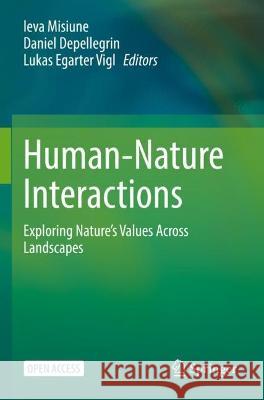Human-Nature Interactions: Exploring Nature's Values Across Landscapes » książka
topmenu
Human-Nature Interactions: Exploring Nature's Values Across Landscapes
ISBN-13: 9783031019821 / Angielski / Miękka / 2022 / 458 str.
Kategorie:
Kategorie BISAC:
Wydawca:
Springer
Język:
Angielski
ISBN-13:
9783031019821
Rok wydania:
2022
Dostępne języki:
Ilość stron:
458
Waga:
0.63 kg
Wymiary:
23.39 x 15.6 x 2.36
Oprawa:
Miękka
Dodatkowe informacje:
Wydanie ilustrowane











